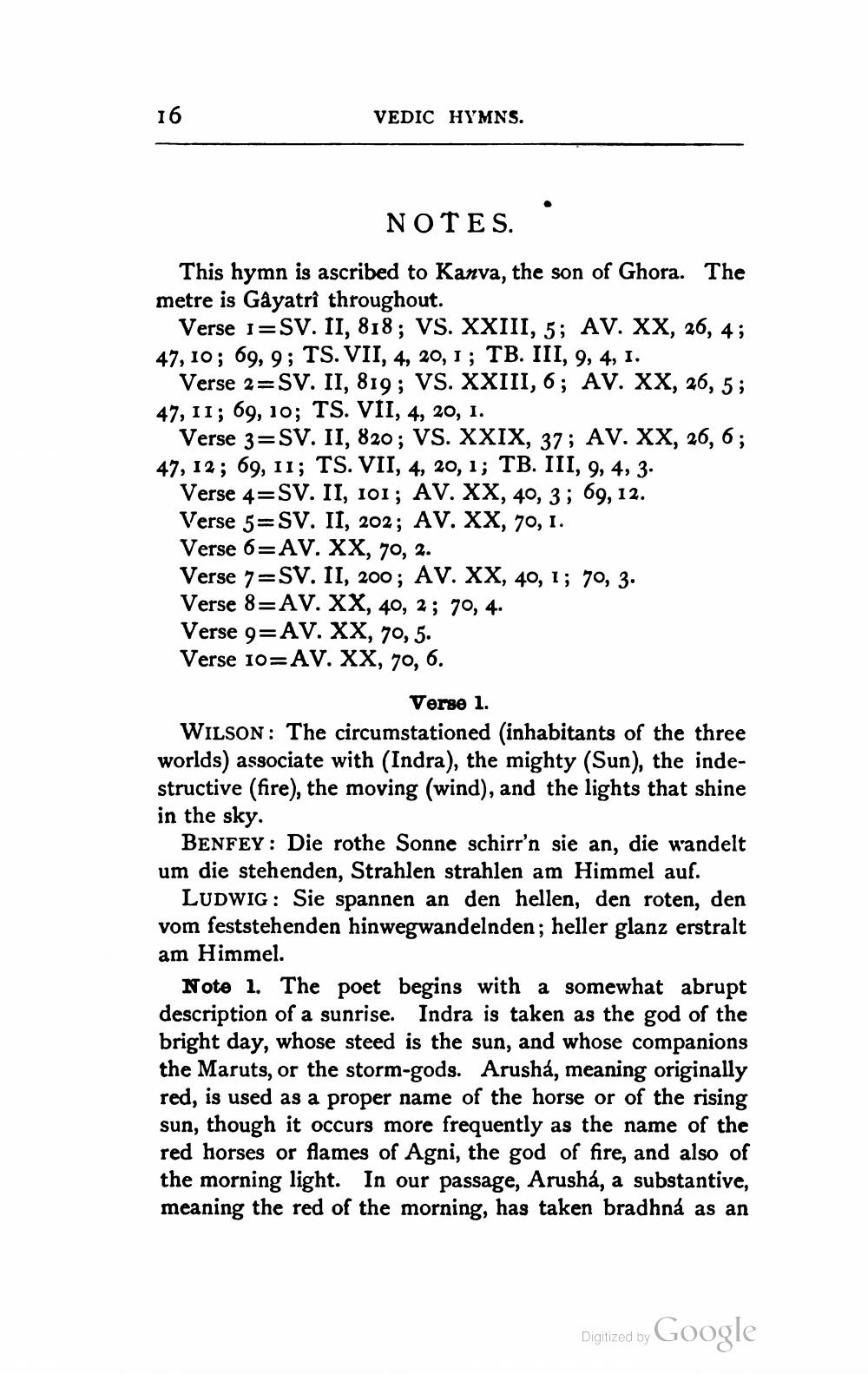________________
16
VEDIC HYMNS.
NOTES.
This hymn is ascribed to Kanva, the son of Ghora. The metre is Gayatri throughout.
Verse 1=SV. II, 818; VS. XXIII, 5; AV. XX, 26, 4; 47, 10; 69, 9; TS. VII, 4, 20, 1; TB. III, 9, 4, 1.
Verse 2=SV. II, 819; VS. XXIII, 6; AV. XX, 26, 5; 47, 11; 69, 10; TS. VII, 4, 20, 1.
Verse 3=SV. II, 820; VS. XXIX, 37; AV. XX, 26, 6; 47, 12; 69, 11; TS. VII, 4, 20, 1; TB. III, 9, 4, 3.
Verse 4=SV. II, 101; AV. XX, 40, 3; 69, 12. Verse 5=SV. II, 202; AV. XX, 70, 1. Verse 6=AV. XX, 70, 2. Verse 7=SV. II, 200; AV. XX, 40, 1; 70, 3. Verse 8=AV. XX, 40, 2; 70, 4. Verse 9=AV. XX, 70,5. Verse 10=AV. XX, 70, 6.
Verse 1. WILSON: The circumstationed (inhabitants of the three worlds) associate with (Indra), the mighty (Sun), the indestructive (fire), the moving (wind), and the lights that shine in the sky.
BENFEY: Die rothe Sonne schirr'n sie an, die wandelt um die stehenden, Strahlen strahlen am Himmel auf.
LUDWIG: Sie spannen an den hellen, den roten, den vom feststehenden hinwegwandelnden; heller glanz erstralt am Himmel.
Note 1. The poet begins with a somewhat abrupt description of a sunrise. Indra is taken as the god of the bright day, whose steed is the sun, and whose companions the Maruts, or the storm-gods. Arusha, meaning originally red, is used as a proper name of the horse or of the rising sun, though it occurs more frequently as the name of the red horses or flames of Agni, the god of fire, and also of the morning light. In our passage, Arusha, a substantive, meaning the red of the morning, has taken bradhná as an
Digized by Google




